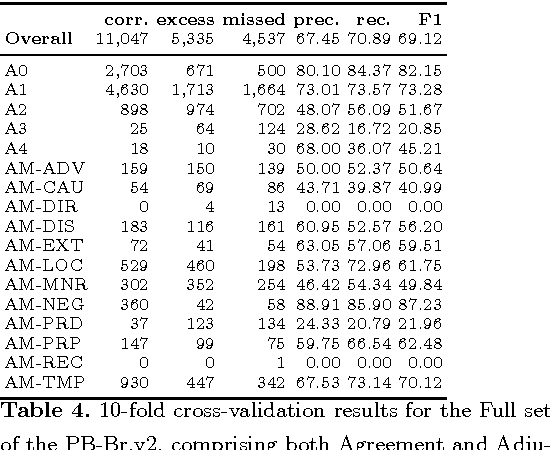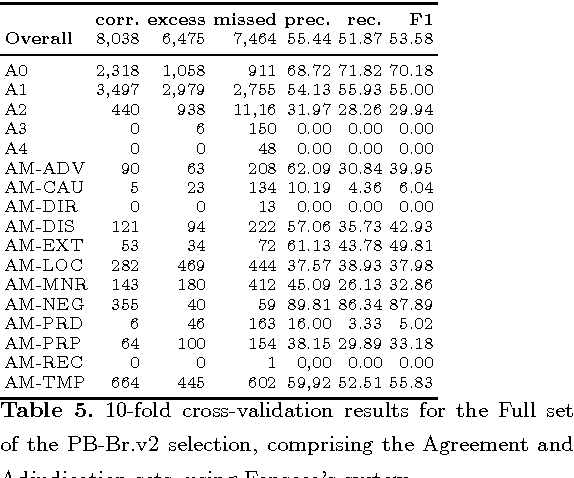Automatic semantic role labeling on non-revised syntactic trees of journalistic texts
Paper and Code
Apr 10, 2017



Semantic Role Labeling (SRL) is a Natural Language Processing task that enables the detection of events described in sentences and the participants of these events. For Brazilian Portuguese (BP), there are two studies recently concluded that perform SRL in journalistic texts. [1] obtained F1-measure scores of 79.6, using the PropBank.Br corpus, which has syntactic trees manually revised, [8], without using a treebank for training, obtained F1-measure scores of 68.0 for the same corpus. However, the use of manually revised syntactic trees for this task does not represent a real scenario of application. The goal of this paper is to evaluate the performance of SRL on revised and non-revised syntactic trees using a larger and balanced corpus of BP journalistic texts. First, we have shown that [1]'s system also performs better than [8]'s system on the larger corpus. Second, the SRL system trained on non-revised syntactic trees performs better over non-revised trees than a system trained on gold-standard data.
 Add to Chrome
Add to Chrome Add to Firefox
Add to Firefox Add to Edge
Add to Edge